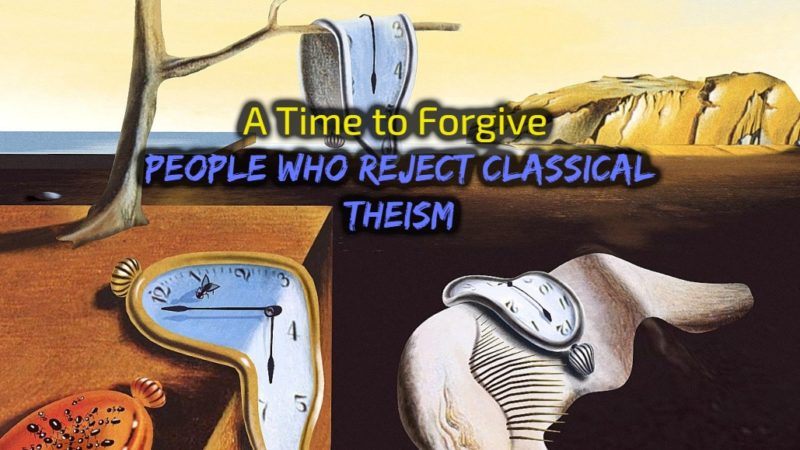Lately our current culture has been weighing deeply on my mind. I’ve thought on it, prayed about it, and tried to speak to it. However, the division that is occurring is mind numbing and I really haven’t seen anything like it. I am partially angry, partially sad, and even partially amused.
The writing was on the wall for decades that this was the direction we’ve been heading, as many people simply shouted at each other across party lines rather than taking sustainable action which would create viable results. Instead, we manufactured band-aids and pandering ideals. We so desperately need to remember whom we are to serve: God and each other. After all, we are created in the image of God and yet so many of us want to try to fix this world by attacking the symptoms rather than the cause: sin.
However, what I have found increasingly disturbing is how Christians have become conformed to this world. They think, speak, and advocate just as the world does. I’ve seen Christians excusing miserable behavior in the name of faux justice by saying that rioting, vandalism of property, and silencing swaths of people because what they say makes us uncomfortable is justified due to (real or imagined) systemic racism. It’s so much easier to slap a label on them and walk away, but in reality, this only serves to bring further havoc to our social environment. So, let’s talk about this. Let’s talk about what’s happening.
Racism. The new unpardonable sin. Not only is it unpardonable, but it has also become the new Salem Witch Trials: Suspect someone of racism? They’re guilty and cannot be proven innocent. We throw these “witches” into the metaphorical water and watch until they float and reveal their racism, or they drown under all the character attacks of accused racism. Either way, it’s a lose-lose. The angry mob says that certain behaviors or ideas are sure signs of the evil that is hidden deep down, so they set up a rigged trial and be sure that nothing is left in its wake. It’s almost become a new cult or religion where a singular view is considered doctrine, and all opposers are damnable heretics. Worse yet, Christians are being sucked into this worldly view alongside the world. Instead of being resistant and “testing all things,” (1 Thess. 5:21) we buy whatever popular narrative is trending at the time. We don’t just bite it- we swallow it- hook, line, and sinker.
I’m amazed at my own personal treatment, not including everyone else’s, during these times. In the last two weeks, I’ve been called a ‘supremacist’ and ‘racist’ by many. Someone even said “Will has bought into white supremacist Christianity.” So of course, I looked at my Korean wife and we both laughed. However, part of me was also angry and disturbed that this rhetoric has become the norm and is used so flippantly. I can’t help but think, how have we gotten to the point where we can’t even speak to one another for a moment without such labels being so irresponsibly thrown around?
As I reflect, I can’t help but find irony in how history always repeats itself and responds in pendulum swings. Years ago, blacks were considered property, dogs, less than human who didn’t deserve any real opinion or view, and now the new race that’s popular to hate is white people. By telling whites to apologize for their privilege, or at least admit they have it is how we’re expected to help heal the world. Should that fail to effect the desired change, the next best step is to beat your neighbor with a crowbar and burn down a local mom and pop shop. How someone uttering such words or the ensuing actions helps the world, I’ll never understand, but nevertheless this is what is being demanded.
Even stranger is how white people are told, “You can’t understand your privilege because your privilege blinds you.” So, I can’t see or understand something that I can’t see or understand? So, I’m just supposed to blindly accept that white privilege is a concept based upon some person, white or black, telling me it is one? In fact, many of those telling me such things are white college age adults, who are almost ashamed of their own pigmentation – which is equally puzzling. While many of my black friends are saying that they don’t see this either. Which begs the question: whose commands am I to blindly follow? What it really comes down to is whether someone feels you have committed such a crime, regardless whether or not you have, especially if they are a person of color.
Voddie Baucham calls this “ethnic gnosticism,” which is “the phenomenon of people believing that somehow because of one’s ethnicity that one is able to know when something or someone is racist.” This happens all the time. It’s a form of identity politics. “You can’t speak on ___ because you’re a _____” Telling people that they have authority over a topic because they happen to fall under some sort of skin deep adjective is absurd. It’s another form of racism/sexism: treating someone differently and silencing them based on their immutable characteristics. In fact, if you have to keep bringing up someone’s race to delegitimize their position – they’re not the racist. If you have to keep referencing someone’s immutable characteristics so that way you don’t have to listen to them? They are not the one committing the sin.
Furthermore, demanding that one people group repent of their ancestors’ sins, apologize, and bow down to a different group is equally immoral and condescending. Let me be clear: to apologize for something you never did is immoral; to blame people who have never committed such atrocities or crimes is evil. In addition, demanding such an apology doesn’t generate a sincere apology- it’s pandering, which is an insult to both parties. This isn’t to downplay the sins of the past. However, empty words and hollow talk fix nothing, and pandering sentiments merely fall upon on self-gratified ears.
On top of that we had people, not so long ago, advocate for a de-segregated society. We had heroes like Rosa Parks take a stand and say, “I’m human too, and my rights are the same as everyone else’s.” She didn’t need the front of the bus. She merely knew that it was her human right to be treated as an equal. So many rightfully fought for a de-segregated society. Now, we have places like Williams College that are offering “affinity housing,” which is a nice way to say “segregated dorms.” We have now come almost full circle where those fighting for equality are advocating for segregation. Instead of progress, we have discovered regression. This is the natural consequence of intersectionality. This is the natural outflow when all you see is someone’s skin color, gender, sexuality, etc.
If you buy into this philosophy of intersectionality, where different groups have different levels of oppression, then you have been deceived by an idolatry of ideology; one that promises equality but delivers inequality. Let me explain: intersectionality says that at the top of the social ladder are straight white males and depending upon race, sex, gender, sexuality, etc., you are on different tiers. In believing this, you are buying into a dangerous philosophy that in the end will not create equality, but rather segregation, because in an effort to make everyone equal, you’ve only succeeded in dividing people further. Additionally, if you advocate for special treatment or recognition because of the color of your skin, your gender, or your sexuality, then you’re not advocating for equality. Instead, you’re supporting superiority. It becomes increasingly immoral when people want (and are given) constant special treatment for their immutable characteristics.
Don’t believe me? Think of all the posts, shows, and blogs talking about white people. There’s literally a show on Netflix called “Dear White People…” Now, with all those things in mind, insert any other ethnicity in there and the world would’ve lost its mind. Why? Because according to intersectionality, we white people are free game since we at the ‘top’ of this invisible social ladder. This is one of the many reasons I wholeheartedly reject this twenty-first century doctrine. It only serves to create further inequality.
This isn’t to say we should live in a “color blind” world either. That world is extremely boring and un-colorful. It’s great to recognize our God given differences. It creates appreciation for different cultures and people groups. My wife is beautifully Korean and I am pasty white. To acknowledge this isn’t immoral. We shouldn’t strive to silence black, Latino, island, Indian, Asian, white, etc. Instead, appreciate them. I don’t wish to be color blind, I strive to love the colorful. To respect that with one another we create God’s world. Instead of judging someone’s experience, understanding, or morals based on their skin color, I wish we could have a world that truly judged one another on our actions, our morals, and our values. I often say that “the issue isn’t race, it’s culture and values.” We need to return to where these values come from: God.
See, only with God can we truly claim racism is immoral. Think about it, if we are just evolved monkeys, the result of a cosmic accident, useless accidental pieces of meat orbiting around a ball of gas, to live and die with no meaning – then what’s wrong with racism? Wouldn’t this be our Darwinian instincts to be tribal and care for our “own kind?” Who’s to tell the baboon that his prejudice against the chimpanzee is wrong? This is just nature taking its course. The fittest fighting for the top of their respective ladders. Only if we accept that God created us in His own image, that God has a moral law, and to despise another person is to despise a fellow image of God can we find true unity, because only in Him is our true identity.
Furthermore, we have people defending and even advocating for the destruction of property which has resulted in dozens of innocent deaths. Some killed in riots, another killed by being crushed under a statue, others losing their livelihoods – who committed no crimes. This shows that when we handle issues wrongfully, it only causes more death and more pain. If you advocate for such things – you too are part of the problem. As a civilized society, we must remain civilized. Let’s talk, have discussions, share ideas, and give solutions to these problems. Violence, destruction, and death is an option that will not get us anywhere. Destruction only begets destruction.
Then there are those who keep shouting bumper stickers, “BLACK LIVES MATTER!” or “ALL LIVES MATTER!” Yes, yes, yes. We know. We agree. Black lives are part of all and all are part of black lives. They are part of each other so no reason to shout them. Now you may ask, “Do you agree with the BLM movement?” My answer is simple: I disagree institutionally but agree morally. The institution stands for things that I am directly opposed to (abortion, intersectionality, neo-marxist theory, etc.) but the moral that black lives matter? Absolutely they do.
This isn’t to say racism doesn’t exist. It most certainly does. But when we start labeling everything we don’t like as “racist,” then we actually hurt the cause against real racism. It merely becomes a buzzword that leads to The Boy Who Cried Wolf. We are so quick to hand this out like candy on Halloween that its very impact has lost its savor.
On top of all this, we infer motive all the time. For people who say “judge not,” we sure like to judge someone’s motive. If someone advocates against violence in the black community they’re labeled as a “stupid SJW commie libtard” and if you speak on deeper issues like the fatherless rates in the black community, drug use, violent crime or any other thing you’re an “unforgivable KKK white supremacist racist hack.” In reality, we’re all advocating and speaking to issues that exist and want to speak to these issues. Instead of speaking, we label and attack, leaving the issues unaddressed and making the trench that divides even deeper.
So instead of dealing with the cultural issues that have a deep impact on minority groups, we spit in each other’s faces so we can feel a little bit more virtuous. When we should be talking about how to keep drugs out of the inner cities, how to encourage two parent households, how to prevent the disproportionate black abortions, how to get men to step up as men, have properly trained people in the police force, and proper accountability measures set for such situations – instead we just scream insults at each other or vandalize a city square. This not only leaves crucial issues unaddressed, but hurts the masses.
People speak of having compassion and empathy, yet don’t even have enough empathy to listen to differing perspectives. What really happens is that we have empathy for that which we care about and hatred toward anyone else’s view that varies from our own. In the end, we have selfish bias masquerading as compassion. People love their labels because it saves them from addressing complex topics and helps them feel self-righteous. Unfortunately, it actually does nothing for those in actual pain right now. Recently, I was even called a white supremacist racist for merely disagreeing with vandalism. Of course, I pointed out the obvious refutation to this: my wife is literally Korean.
Then the laughably pathetic thing happened. I was told she was my token card to deny racism, and that secretly she was terrified to tell me that I was a miserable racist for fear of me domineering over her with my whiteness. I was angry for a moment, because this was not just disrespectful to me, but to my loving wife. So, I merely pointed out the obvious: “So because we disagree on this point, you accuse me of being a racist, I show you very obvious evidence that I’m not a racist, and now you twist even that to say I’m racist? Yet, if I agreed with you on this issue, you’d say that my interracial marriage was brave and beautiful and against the social constructs. So in the end, I am whatever you choose to perceive me to be no matter what the facts are to the matter.” This is the nature of the conversation nowadays. We want to label and twist whatever people say to shut them down. Intellectual honesty, decency, and respect be damned – we have a narrative we demand be followed. It’s either you agree with the status quo of our perceived beliefs, or you’re a leftist shill or a racist (depending who you’re talking to.) You’re either for us, or you’re against us.
People, ideas have consequences, and what you’re seeing happen right before your eyes is when bad ideas are allowed to blossom and set their roots. Consequences happen. The lack of morals on a number of various fronts has caused unspeakable pain and evils in this world. It’s time we wake up and see things as they ought to be. It’s time we recognize one another as humans. Brothers and sisters. Children of God. Image bearers of the Creator. It’s time we laid down pitchforks and torches. It’s time to stop following mobs and the next big thing. The world is manipulating us to keep us divided. Black lives most certainly matter, powers need to be kept in check, but the answer isn’t attacking and hating one another. This only creates more disdain in our world.
I greatly disagree with many people. I’m a pastor after all – we don’t do what we do to win popularity contests. However, I will always do my best to respect and love one another, because behind every sentence spoken is another person whom God shaped in the womb. People whom He loved and put in the world. In the end, if you want real change, you must see things through a framework that isn’t about race/gender/sexuality, but rather right versus wrong. Moral vs immoral. Righteousness vs. unrighteousness. Godly vs. ungodly. The only way you can find a clear picture of this is through surrendering to the creator of the universe: God.
Let me encourage you to stop insulting and attacking one another, and instead speak to one another. Listen, love, and even correct one another if needed. The philosophies today are washing away the masses and only leave destruction in their wake. Choose a better way. A higher way. A transcendent way. Put your faith in Jesus Christ, approach things as He did. With grace and truth.
Galatians 3:28
“There is neither Jew nor Greek, there is neither slave nor free, there is no male and female, for you are all one in Christ Jesus.”



